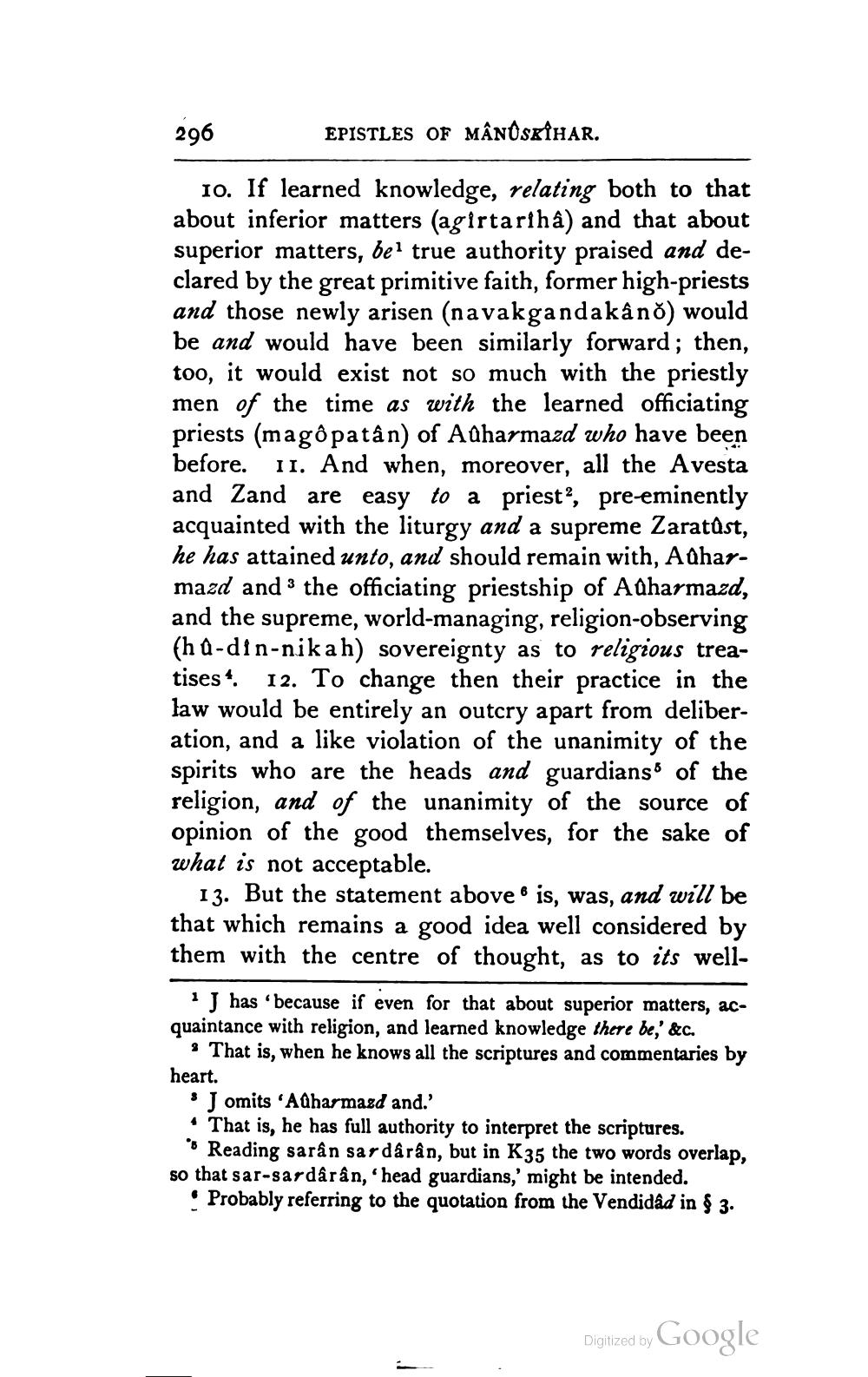________________
296
EPISTLES OF MÂNOSKİHAR.
10. If learned knowledge, relating both to that about inferior matters (agirtarihậ) and that about superior matters, bei true authority praised and declared by the great primitive faith, former high-priests and those newly arisen (navakgandakâně) would be and would have been similarly forward; then, too, it would exist not so much with the priestly men of the time as with the learned officiating priests (magôpatân) of Adharmazd who have been before. 11. And when, moreover, all the Avesta and Zand are easy to a priest, preeminently acquainted with the liturgy and a supreme Zaratūst, he has attained unto, and should remain with, Adharmazd and 3 the officiating priestship of Adharmazd, and the supreme, world-managing, religion-observing (h Q-din-nikah) sovereignty as to religious treatises". 12. To change then their practice in the law would be entirely an outcry apart from deliberation, and a like violation of the unanimity of the spirits who are the heads and guardians of the religion, and of the unanimity of the source of opinion of the good themselves, for the sake of what is not acceptable.
13. But the statement above 6 is, was, and will be that which remains a good idea well considered by them with the centre of thought, as to its well
'J has “because if even for that about superior matters, acquaintance with religion, and learned knowledge there be,' &c.
9 That is, when he knows all the scriptures and commentaries by heart.
J omits 'Adharmazd and.' • That is, he has full authority to interpret the scriptures.
o Reading sarân sardarân, but in K35 the two words overlap, so that sar-sardârân, head guardians,' might be intended.
• Probably referring to the quotation from the Vendidâd in $ 3.
Digitized by Google




